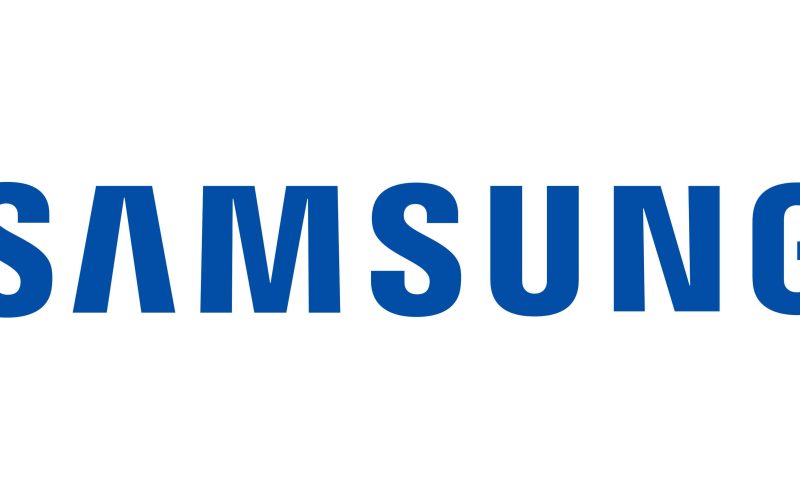Samsung’s worth fluctuates due to market conditions, but it’s consistently valued in the hundreds of billions of dollars. It’s one of the most valuable companies worldwide, driven by diverse revenue streams like consumer electronics, home appliances, semiconductors, and display technologies.
The smartphone division, particularly the Galaxy series, and the semiconductor business are major contributors to its financial health. Expansion into renewable energy and EV batteries also offers exciting growth potential. To truly understand Samsung’s immense value and strategic moves, there’s much more to uncover.
Samsung’s Market Capitalization
Samsung’s market capitalization is a key indicator of its overall value in the stock market. When you look at market capitalization, you’re essentially seeing the total value of all a company’s outstanding shares. For Samsung, this figure fluctuates with market conditions, investor sentiment, and broader economic factors, but it consistently ranks among the highest in the world.
To calculate Samsung’s market cap, you’d multiply the current stock price by the total number of outstanding shares. This figure gives you a snapshot of what investors believe the company is worth at any given moment. When Samsung’s stock price rises, its market cap increases, signalling investor confidence in its future growth and profitability. Conversely, a drop in stock price results in a lower market cap, reflecting potential concerns or market corrections.
Why does this matter to you? Well, market capitalization is often used to compare the size and stability of companies within the same industry. A higher market cap generally indicates a more established, financially stable company. For investors, it’s a crucial metric for making informed decisions about where to allocate their funds.
Revenue Streams Overview
When examining its revenue streams, you’ll see that Samsung generates income from a diverse range of products and services. The company’s portfolio includes consumer electronics, home appliances, semiconductors, and displays. Each of these segments contributes significantly to Samsung’s overall revenue.
In the consumer electronics category, Samsung is a leading manufacturer of televisions, audio equipment, and other home entertainment products. Their innovative technology and broad product range make them a top choice for consumers worldwide.
Home appliances like refrigerators, washing machines, and air conditioners also bring in substantial revenue, thanks to Samsung’s reputation for reliability and cutting-edge features.
Semiconductors are another major revenue driver. Samsung is one of the largest producers of memory chips and processors, which are essential components for a wide range of electronic devices, from computers to gaming consoles. This segment benefits from the constant demand for more powerful and efficient technology.
The display division is yet another vital part of Samsung’s revenue streams. They produce high-quality screens for smartphones, televisions, and other devices, often setting the standard for display technology.
Smartphone Division Earnings
Delving into the smartphone division, you’ll find that this segment plays a crucial role in Samsung’s financial success. As one of the world’s leading smartphone manufacturers, Samsung consistently generates significant revenue from this market. The company’s flagship Galaxy series, including models like the Galaxy S and Galaxy Note, often sets new benchmarks in technology and innovation, attracting millions of consumers worldwide.
Samsung’s aggressive marketing strategies and extensive distribution networks ensure their devices reach a global audience. Additionally, they offer a wide range of smartphones, from high-end models to more affordable options, catering to different market segments. This diversity helps Samsung maintain a strong market presence and steadies their earnings against economic fluctuations.
In recent quarters, Samsung’s smartphone division has shown solid performance despite intense competition from other tech giants. This resilience is partly due to their continuous investment in research and development, ensuring they stay at the cutting edge of mobile technology.
Semiconductor Business Impact
The semiconductor business significantly bolsters Samsung’s overall valuation and market strength. You can’t overlook how crucial this division is. Samsung’s semiconductor unit doesn’t just contribute to their revenue; it also cements their place as a tech leader.
Here are four key points about the impact of Samsung’s semiconductor business:
- Revenue Generation: This division consistently pulls in billions of dollars annually. It’s a major revenue stream and a backbone for Samsung’s financial health.
- Technological Leadership: Samsung’s expertise in semiconductor technology helps them stay ahead of many competitors. Their advancements in memory chips and processors are industry-leading.
- Market Influence: Samsung’s semiconductors are used in a variety of products, from smartphones to servers. This broad application range boosts their market influence and brand strength.
- R&D Investment: Samsung heavily invests in research and development for their semiconductor business. This not only drives innovation but also ensures they remain at the forefront of technological advancements.
Consumer Electronics Revenue
Beyond semiconductors, Samsung’s consumer electronics division also plays a pivotal role in generating substantial revenue. When you think of Samsung, it’s likely their range of smartphones, TVs, and home appliances come to mind. These products aren’t just popular; they’re essential to Samsung’s financial health.
Samsung’s Galaxy smartphones, for instance, are consistently among the top-selling devices worldwide. They offer a variety of models tailored to different consumer needs, ensuring a broad market reach.
Their Smart TVs, equipped with advanced features like QLED technology, also attract a significant consumer base. You likely know someone who owns a Samsung TV, given their reputation for high quality and innovation.
Home appliances further solidify Samsung’s stronghold in the market. From refrigerators to washing machines, these products are staples in countless households globally. Their focus on smart home technology enhances their appeal, making everyday life easier and more connected for users.
In consumer electronics, Samsung’s strategy of combining cutting-edge technology with user-friendly designs has proven immensely successful. This division not only boosts their revenue but also reinforces their brand’s position as a leader in the tech industry.
Financial Report Analysis
Frequently, Samsung releases detailed financial reports that offer a comprehensive look at their revenue streams and overall financial health. These reports are crucial for anyone looking to understand the company’s worth.
You can break down Samsung’s financial performance into several key areas to get a clearer picture.
First, Samsung’s revenue is consistently high, driven by diverse product lines from smartphones to semiconductors. Their financial reports show where the money comes from and how each sector contributes to the overall revenue.
Second, the operating profit is a critical metric. It tells you how efficiently Samsung is running its operations. Higher operating profits indicate that the company is effectively managing its expenses relative to its income.
Third, the net income gives you an idea of Samsung’s overall profitability after all expenses, taxes, and costs have been deducted. This number is vital for understanding the company’s ability to generate profit for shareholders.
Future Valuation Predictions
Predicting Samsung’s future valuation requires analyzing current market trends and potential growth areas. You need to consider the company’s strong foothold in various sectors like smartphones, semiconductors, and home appliances.
Samsung’s innovative edge, especially in 5G technology and foldable smartphones, positions it well for future revenue growth.
Keep an eye on the semiconductor market, where Samsung is a global leader. With the increasing demand for chips in everything from cars to AI, Samsung’s dominance here could significantly boost its future worth.
The company’s investment in AI and IoT (Internet of Things) technologies also suggests it’s preparing for the next big wave in tech.
Additionally, Samsung’s expansion into renewable energy and electric vehicle (EV) batteries offers promising avenues for growth. These sectors are expected to see substantial investment and consumer demand in the coming decades. If Samsung captures even a fraction of this market, its valuation could skyrocket.
However, you must also consider potential risks, such as geopolitical tensions and supply chain disruptions. Balancing these factors will give you a clearer picture of Samsung’s future valuation.
Frequently Asked Questions
How Does Samsung’s Brand Value Compare to Other Tech Giants?
You’re curious about Samsung’s brand value compared to other tech giants. Samsung consistently ranks high, often trailing Apple and Google but ahead of many others. It’s a strong contender in the competitive tech industry.
What Is Samsung’s Global Workforce Size?
You’re asking about Samsung’s workforce size. As of the latest data, Samsung employs over 287,000 people globally. They have a diverse and vast workforce contributing to their status as a tech giant.
How Much Does Samsung Invest Annually in Research and Development?
Samsung invests around $18 billion annually in research and development. You can see their commitment to innovation in their cutting-edge products. They’re always pushing boundaries to stay ahead in the tech industry.
What Are Some Notable Acquisitions by Samsung?
You’re curious about Samsung’s notable acquisitions. They’ve acquired companies like Harman International for $8 billion, SmartThings for around $200 million, and LoopPay for mobile payments. These moves have expanded their reach in various tech sectors.
How Has Samsung’s Environmental Sustainability Efforts Impacted Its Valuation?
Samsung’s environmental sustainability efforts have boosted its brand image and investor confidence. You can see this in its increased valuation, as consumers and investors prefer companies committed to sustainability. Samsung’s dedication to eco-friendly practices pays off.
Conclusion
Samsung’s financial health is impressive, with diverse revenue streams fueling its market value. You can see how the smartphone division, semiconductor business, and consumer electronics contribute significantly.
By analyzing financial reports and considering future growth predictions, it’s clear that Samsung’s valuation is set to rise. Don’t underestimate their market presence; you’re looking at a tech giant with a robust, dynamic financial future.

